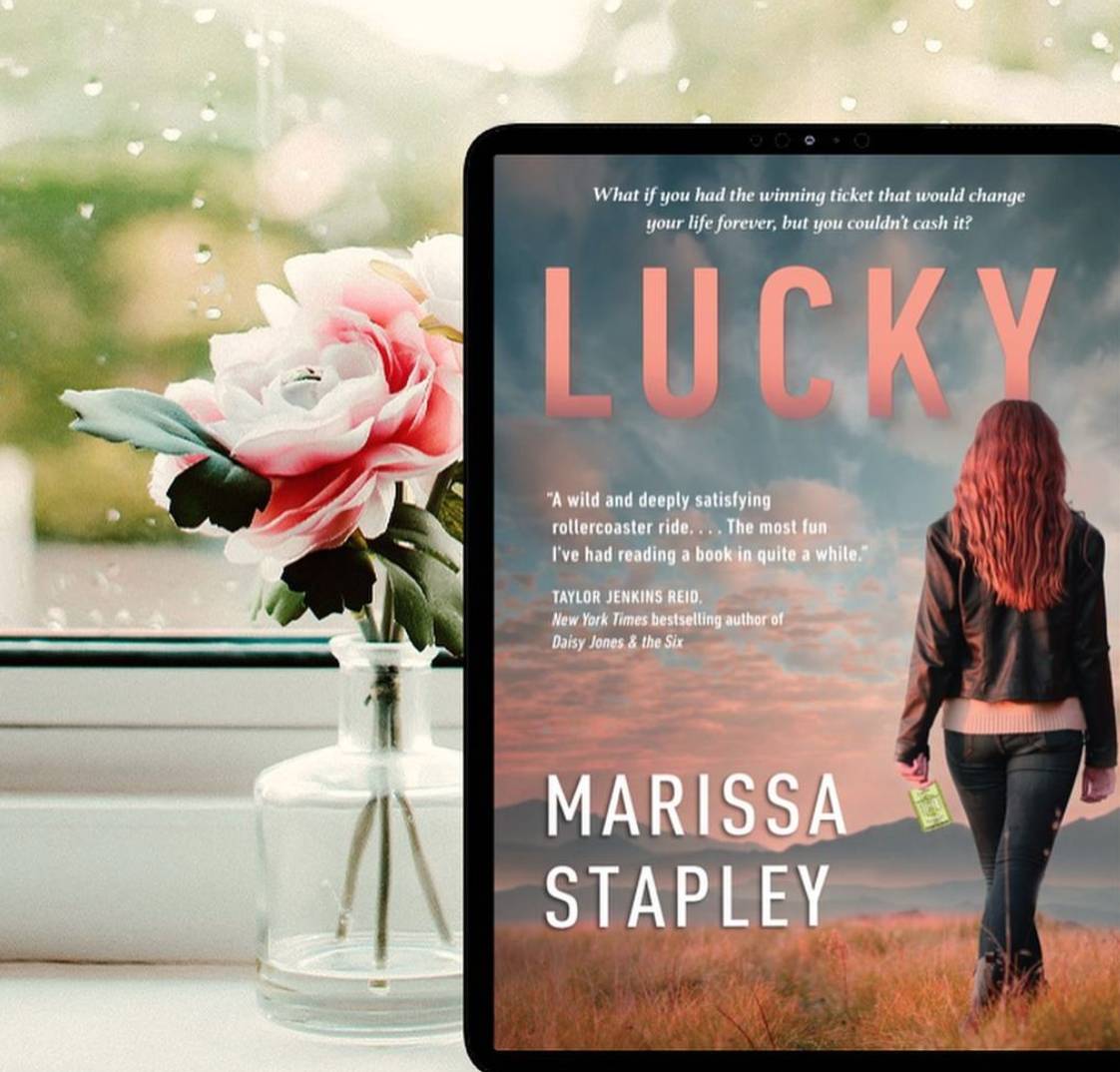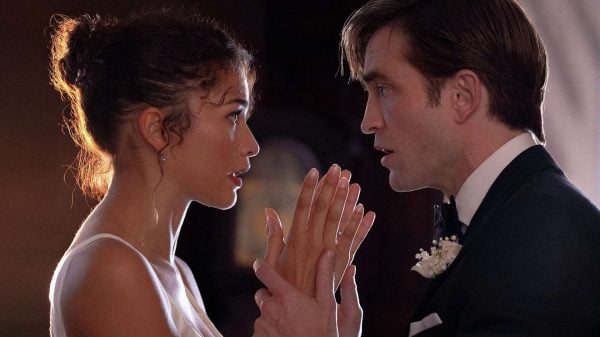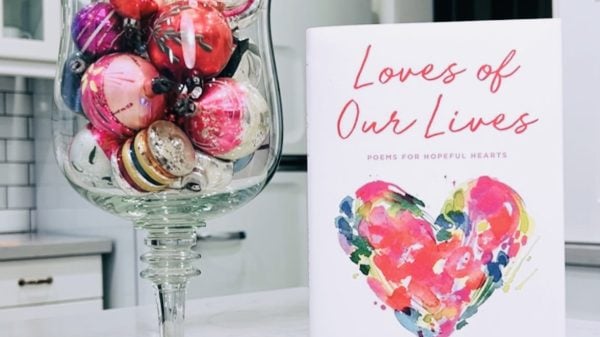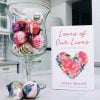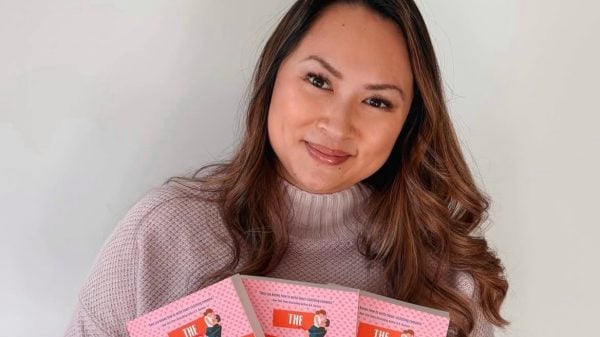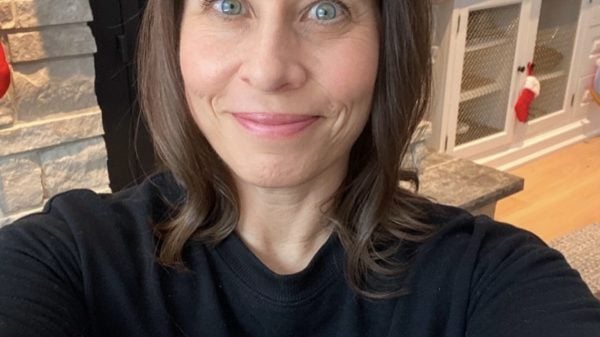Welcome to STYLE Canada’s Boreal Book Club: a monthly meeting narrated by Erin Catto, (reviewer at Girl Well Read), for bookworms who are looking to scour new pages. Each instalment of our Boreal Book Club will feature a Canadian author and their latest title. Be sure to use the hashtag #BorealBookClub to share with us on social!
What if you had the winning ticket that would change your life forever, but you couldn’t cash it in?
Lucky Armstrong is a tough, talented grifter who has just pulled off a million-dollar heist with her boyfriend, Cary. She’s ready to start a brand-new life, with a new identity — when things go sideways. Lucky finds herself alone for the first time, navigating the world without the help of either her father or her boyfriend, the two figures from whom she’s learned the art of the scam.
When she discovers that a lottery ticket she bought on a whim is worth millions, her elation is tempered by one big problem: cashing in the winning ticket means the police will arrest her for her crimes. She’ll go to prison, with no chance to redeem her fortune.
As Lucky tries to avoid arrest and make a future for herself, she must confront her past by reconciling with her father; finding her mother, who abandoned her when she just a baby; and coming to terms with the man she thought she loved—whose complicated past is catching up to her, too.

Marissa Stapley (Eugene Choi)
With its clever premise, Lucky delivers a spirited thief of a heroine that readers will find themselves rooting for. Told in alternating timelines between a child version and a present day adult version, this is a novel about truth, the complexity of doing what’s right, and redemption.
Stapley plays on the sympathy of her reader with 10-year-old Lucky. She is vulnerable yet competent and overall, a compelling lead. Lucky’s father is both loathsome and charming; the quintessential con man.
Perfectly paced with shorty, punchy chapters, Lucky is a character-driven narrative that will hook readers until the very last page. It’s smart, slick, and satisfying. And soon to be on the small screen—the TV rights to Lucky have been sold to ABC Disney. Congratulations, Marissa!
Scroll to learn more about Stapley in an inclusive interview with STYLE Canada!

GWR: Can you describe your ideal writing/reading experience (when, where, what, and how)?
MS: I don’t think I necessarily have one! I can—and have—read and written anywhere. But as far as reading goes, I can’t sleep if I haven’t read (truly, even if I have a really late night at an event, I’ll wake up my husband with my reading light because I can’t unwind unless I do a little reading!) so my perfect reading situation is when we’re having a quiet night, no one needs anything, and I can retreat to my room, put on PJs, light a candle and chill with a book. I enjoy this more than unwinding by watching TV and always have such a happy glow when I’m reading a book I’m super into and can’t wait to get to it that night.
For writing, I used to say I needed to be alone to get my writing done, but the past year and a half has changed all that, since I can count the number of times I’ve been alone on one hand. Now I think my ideal writing experience happens when my office and house are passably clean, everyone is happy and acceptably quiet, I’m feeling inspired and have no time limit. I also like getting up early before everyone else is awake to sort of pretend I’m alone, writing…
But my absolute favourite writing experience happens during the retreats I used to go on and hope to again with a group of writer friends. We write all day, until the sun sets—then have wine and cheese and charcuterie and salad, basically anything we don’t have to cook, and talk about writing and life. We have a house we go to by a lake for four days at a time, once per season. It’s a dream. The perfect mix of productive and restorative.
GWR: What does your actual writing process look like? Are you a pantser/gardner or a plotter/architect?
MS: I’m both, depending on the project. When I’m writing on my own, I like to ‘pants’ my way through a very messy and personal (as in I would die if anyone read it!) first draft. It’s usually about half the length of an actual draft, and contains a lot of ‘I will figure this out later!!’
For me, so much of the joy I get from writing is in the mystery of what is going to happen next and where my characters are going to take me. That first draft is how I get to know them and let them do their thing—and how I identify where we’re going to have pitfalls and problems. Seeing that first draft as just mine and really more like a very freeform outline helps me write a good book in many ways. It helps the process stay organic. It also helps me identify if an idea I have truly has legs, or if I can only get through a few chapters before the whole thing just dies out on me.
But when I write with my partner in rom coms, Karma Brown, we have to outline. I think Karma would have a heart attack if I forced her to pants her way through a first draft with me. She is definitely a plotter! And that’s OK because I don’t think you can partner up with someone on writing a book and not have a proper outline. We both accept that things are going to change somewhat as we go and we’ll have to communicate about that, but we definitely have a very solid road map in place. That’s also a good thing for genre fiction, where there are certain tropes you simply have to ascribe to. (As in, a happy ending! Light-hearted romantic moments! A bit of spice!) Having it all laid out before you start means you can keep all that in mind as you go and don’t have to do quite so much layering after.
GWR: What comes first for you—the overall idea or the characters?
MS: It is generally different for every book — for example, Mating for Life and Things to Do When It’s Raining were definitely characters first. But with my next two, The Last Resort and Lucky, the situations that came to me first. And I think I like it better that way. It’s a lot easier to have a great plot and then create the perfect character to fit into it than it is to have a character you are already in love with—this happens—who you just cannot figure out a story arc for. So, you have to let them go. It’s a heartbreak when that happens!
GWR: Do you have a favourite character in this book? What character did you sympathize with the most and did that change while writing the book?
MS: For a book like this, I think the only answer can really be Lucky. And this is new for me, since it’s my first book with just one POV/main character. I was so excited when I thought of Lucky! Finally, an uncomplicated narrative with just one person! Of course, books are never uncomplicated no matter what, and Lucky revealed to me early in the process that we needed to add a dual timeline and get to know her as a child, which definitely made things far more complex. But it also meant I got to share all the things I already knew about her with my reader (because I do generally get to know my characters from birth to death, even if half of that never shows up on the page).
I will say that now that I’m working on TV development for Lucky I’ve been required to take a harder look at some of the other characters and develop more sympathy/empathy for characters like Cary and John as we try to figure out ways to carry them through into other seasons. I’m happy to say I don’t wish I had thought of some of this stuff as I was writing the book. I think the book is perfect as it is! But some of these new ways of looking at the characters are definitely better from a TV series perspective, and it has been a cool experience to learn that.
GWR: What was the hardest scene to write?
MS: Lucky and Priscilla in the storage locker. It was so action-packed—very visual, like a scene from a movie or show! I really didn’t; want it to be too heightened or come off as cheesy or contrived, and I did want it to be really exciting and a bit scary. I had to rewrite it over and over. I also struggled with a later scene to do with Lucky and her dad and a conversation they had to have. I had to strike a fine balance between anger and sadness, and think about times in my life when I may have felt that way. When someone has done something that hurts, and there is absolutely no undoing it. But you still love that person, because your head hasn’t caught up with your heart yet.

Marissa Stapley
GWR: Lucky is very visual. Did you set out to write it this way?
MS: Definitely. I first imagined Lucky as a TV show, which has long been a goal of mine—to see one of my books make it to the screen. And having already had an experience with an option that didn’t go anywhere, I decided to learn what I could from all those conversations I had had. One of the things the producers and filmmakers always said was that for a book to be optionable there has to be a strong engine and that every scene has to be visual in some way. I knew I could make that happen—and had so much fun doing that with Lucky.
GWR: Can you tell me about the research you did for Lucky?
MS: I started out by taking as many books out of the library as I could about con artists (books about Bernie Madoff and Frank Abagnale) and scams. I also read books about how to avoid being conned—with the sinister intention of trying to figure out how to BE a con artist. I learned so many interesting things during this process, and as I moved from reading books about cons to reading articles online and Googling the different types of grifts and scams there are out there: that the reasons scams works is because we are inherently trusting as a society. That’s beautiful! It’s also frustrating, because con artists seek to and very often do succeed at exploiting that. That’s why it was important for me to create a character with a moral compass.
The reality about con artists is that they are often sociopathic type personalities; they just don’t feel things the way the rest of us feel them and are therefore able to breach the code of trust society has built into it without missing a beat. But Lucky is not a sociopath. She’s a criminal, yes, but she’s a loveable character, someone you want to root for—important for a story where the driving force of it is a lottery ticket. I needed readers to want to see her win that money!
GWR: What made you decide to write the book from Lucky’s perspective as both a child and an adult? It is incredibly effective.
MS: It was because of that idea that I needed my reader to want to cheer for Lucky, to want to follow her anywhere—and in order to accomplish that, she needed to be truly understood. The only way to get there was to start at the very, very beginning of her story. The moment I began to weave in those past scenes—starting with the baby on the church steps—was the moment the book started to take shape and feel like magic.
GWR: If you could tell your younger self something about writing and becoming an author, what would it be?
MS: Go to law school! Just kidding. Persist. Don’t give up. It isn’t going to be easy, don’t kid yourself into thinking it is. And also, don’t fool yourself into thinking that because it isn’t easy, it isn’t meant to be. Having to work hard at something and experience failure along the way, especially when choosing to lead a creative life, is just part of it. Be tough, brave, and bold. (I like to think I have taken all of this advice already, and that makes me happy!)
GWR: What books are on your nightstand?
MS: I cannot type all those titles out, we’d be here all day! I always have a few books (and journals!) on the go. Katherine Heiny’s Early Morning Riser is on my desk right now. I’ve been carrying it around with me all day, wanting to curl up and finish it. Heiny is a new discovery. I devoured all her books over the past few weeks. She’s exactly what I need right now: funny, incisive, romantic, witty, observant, sharp.
GWR: Can you share what you are working on now?
MS: I’m currently working on the TV development for Lucky with Carlton Cuse and his ABC/Disney team, and on the second rom com with Karma Brown (we write as Maggie Knox) called All I Want for Christmas. Our first, The Holiday Swap, will be out this October, and our second is due out the following year. It’s so much fun. There are serious Nashville vibes. It’s an enemies to lovers story about a pair of singers who win an American Idol-esque singing competition based in Nashville because of their on-stage chemistry. They end up having to pretend to be a couple for one year, even though the actually dislike each other. The final thing they have to do together to fulfill their contract is write a romantic holiday song and perform it at the Grand Ole Opry on Christmas Eve. You can probably guess what happens next… genuine sparks start to fly! But a scandal threatens to tear them apart. It’s so much fun! I already said that, but I’m leaving it because it’s so true.
To read more about Stapley’s previous books, click here!


